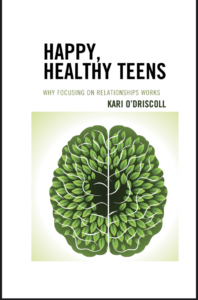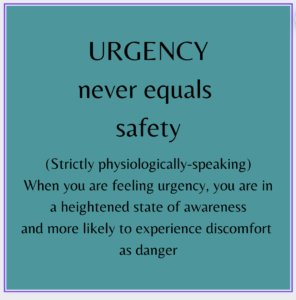Yesterday I had the opportunity to talk with Allen Cardoza of Answers Network about the new book

We were having such a great conversation that we ran out of time at the end of the show to answer questions, but I wanted to address this one that a listener sent in because it is something I hear often – that there is a pervasive tension between a teen and one or both parents. It is not uncommon for something small to spark what feels like a Cold War and trying to figure out how to get to a place of calm and ease again can feel impossible. So how do we build relationship when it seems like we can’t even stand to be in the same room as someone?
I have a few suggestions:
1. Start Small – small, consistent acts of kindness add up and over time, our kids will begin trusting that we truly do love them and want to be in relationship with them. One great way to do this can be stopping what you’re doing when they walk in the room (close your laptop or put your phone face down, turn to face them), make eye contact, and say, “Hey there! I’m glad to see you.” Don’t ask if they’ve done their homework or chores, challenge them about where they’ve been or where they’re going, comment on what they’re wearing or admonish them for grabbing a snack right before dinner. Just acknowledge your child’s presence and let them know that you’re happy to see them. Period. This will likely seem so unusual that they may be suspicious, but hold your ground. We all love it when someone pays attention to us and acts as if they care that we exist.
2. Include them in the conversation – When you’re debating what to wear to your big meeting or trying to figure out what to cook (or order) for dinner or deciding what caption to use on your latest Instagram post, ask your teen for their opinion. Find things where the stakes are not too high and see what they think. Often, we are all so busy that our interactions with teens become purely transactional – how will you get from Point A to Point B, have you completed your homework/chores, when is that paper due, it’s time to put the phone away and head to bed – and we forget that they have rich inner lives and opinions about all sorts of things. We often tell them what we think they should do, but they don’t usually get to weigh in on our choices and asking them can help them begin to trust that we see them as intelligent, capable human beings.
3. Let your teen be the expert – Teens don’t often get a chance to demonstrate their abilities and ideas to adults unless they’re completing a task we gave them, and they are keenly aware that they are being graded or judged on their performance most of the time. Imagine what it does to a young person to constantly feel as though they are being “taught” (which, by default, means that we are focusing on what they don’t know). Flip that on its head and ask your teen to teach you something, even if it’s not something you are terribly interested in. Maybe they have a favorite video game or are skilled in a sport or creative activity you haven’t ever done. Spend an afternoon letting them take the lead and showing you all the ways they are the expert in something. Let them laugh at how inept you are and don’t take it personally. I am horrible at video games, but I’ll play them if it means getting to hang out with my kids for a while and laugh (even if we are all laughing at me).
These are just three simple ways to begin building connections with our tweens and teens that show them we are interested in who they are as individual people more than we are interested in “teachable moments” or discipline. When we are curious about what others are thinking and feeling, what they’re passionate about, it shows, and if we can see and hear our kids without judgment or feeling like we have to jump in and direct their every move, we are building a foundation that will last for years.
Often, the source of hostility between teens and parents lies in power struggles. Teens are working hard to find parts of their lives where they get to have some autonomy and agency, where they get to make choices, and if we as parents are constantly reminding them that they have no power (and maybe that we aren’t giving them any because we don’t think they’re able to handle it), they will react by shutting down relationship. The fact is, it’s impossible to be in a safe, trusting relationship with someone who has ultimate power over you. So if what we want is to be in relationship with our kids, we have to be willing to start sharing power and seeing them as whole human beings worthy of our consideration.
Thanks to Allen Cardoza and Answers Network for the really great conversation and thanks to the listeners for their important questions. Please grab a copy of the book for more insights and information like this and reach out with other issues you have!






